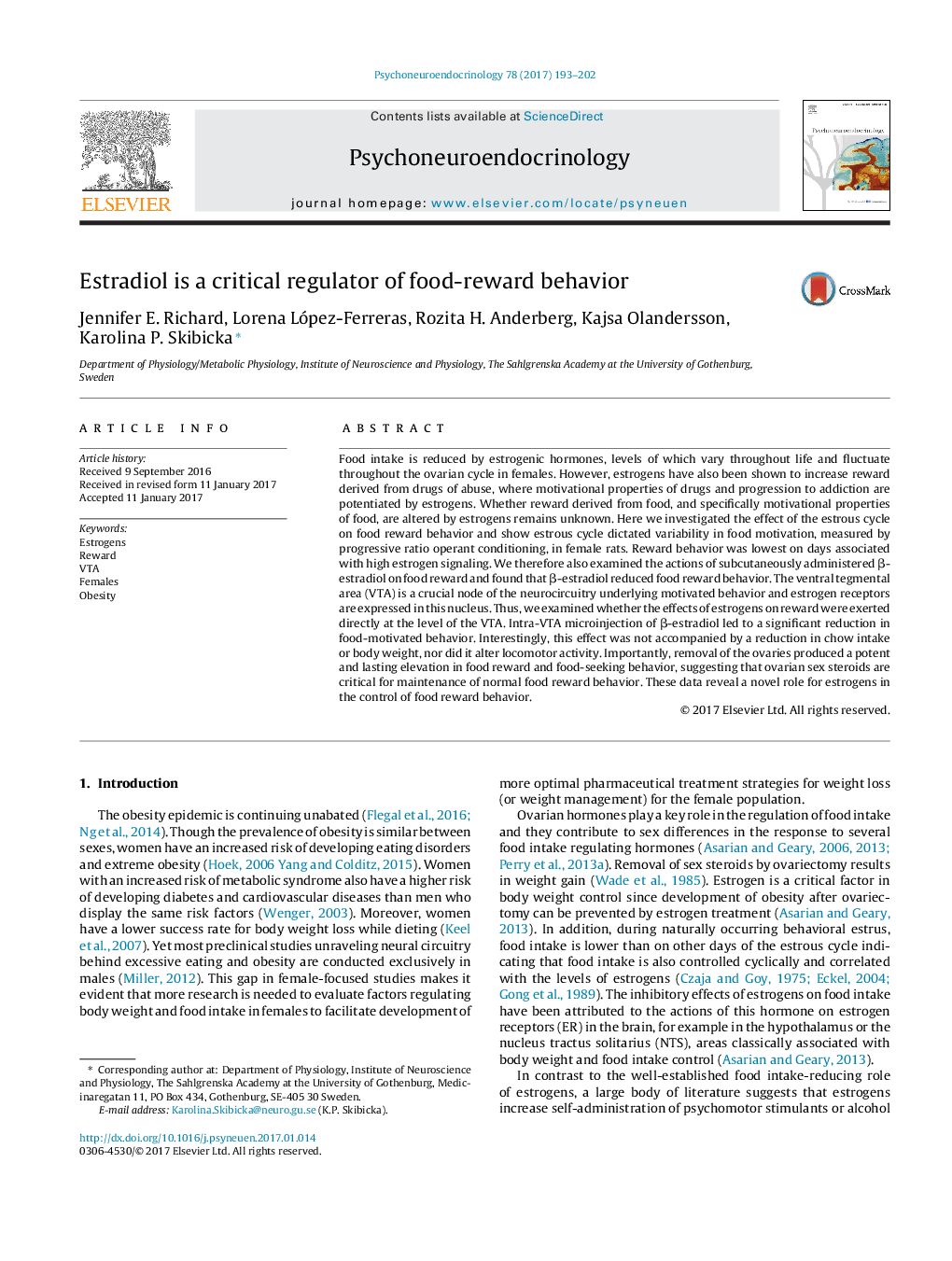ترجمه فارسی عنوان مقاله
استریاییدول یک تنظیم کننده حیاتی رفتار غذایی پاداش است
عنوان انگلیسی
Estradiol is a critical regulator of food-reward behavior
| کد مقاله | سال انتشار | تعداد صفحات مقاله انگلیسی |
|---|---|---|
| 112662 | 2017 | 10 صفحه PDF |
منبع

Publisher : Elsevier - Science Direct (الزویر - ساینس دایرکت)
Journal : Psychoneuroendocrinology, Volume 78, April 2017, Pages 193-202

